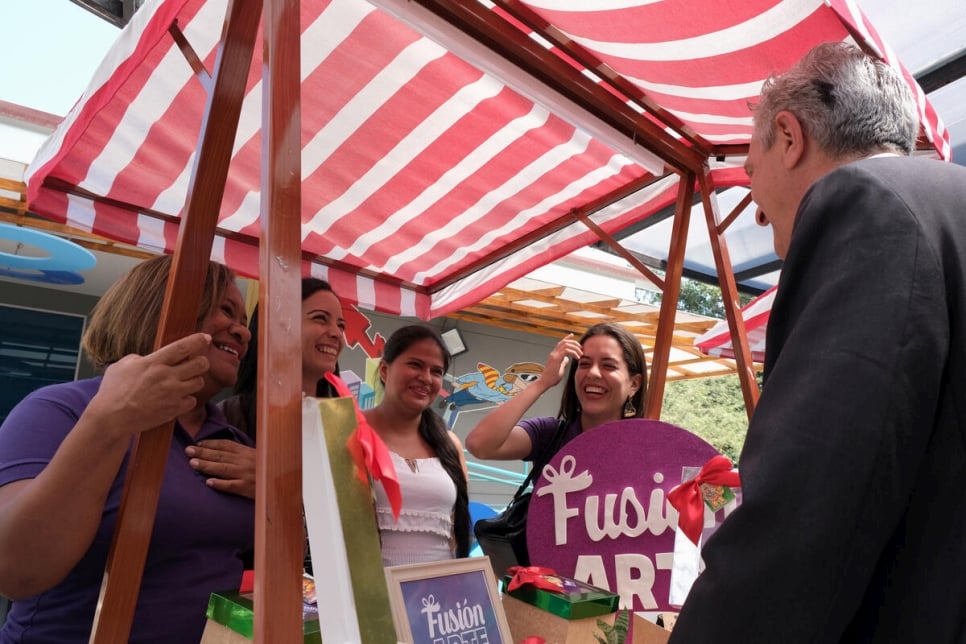 UN High Commissioner for Refugees Filippo Grandi meets refugee and migrant entrepreneurs in Guayaquil, Ecuador. © UNHCR/Santiago Escobar-Jaramillo
UN High Commissioner for Refugees Filippo Grandi meets refugee and migrant entrepreneurs in Guayaquil, Ecuador. © UNHCR/Santiago Escobar-Jaramillo
GENEVA - With one-fifth of the world's 100 million forcibly displaced people hosted in the Americas, urgent action is needed to respond to and resolve their plight, UN High Commissioner for Refugees Filippo Grandi said, as he concluded a week-long visit to the region, where he met with displaced people, community leaders and national and local authorities.
Between 12 and 16 December, High Commissioner Grandi saw first-hand some of the efforts from states, civil society and other stakeholders to coordinate their response and find solutions to the complex population movements involving people from several nationalities who are on the move throughout the continent.
Among those uprooted are millions of refugees and migrants from Venezuela, and others who are displaced inside Colombia and in Central America. Increasing violence in some countries, the rising cost of living, economic hardship resulting from the COVID-19 pandemic, as well as deepening poverty due to high unemployment and low wages have made it difficult for many forcibly displaced people to find stability, forcing many to undertake long perilous journeys.
In Honduras, Grandi met with civil society organizations that contribute to prevent forced displacement in their communities, and with families from various countries across Latin America and the Caribbean who have embarked on desperate journeys in search of safety and protection. In Colombia he heard how, despite the peace process, people are still being displaced by violence and about the importance of including the perspectives of impacted communities in the peace process. In Ecuador, Grandi witnessed various initiatives to address the challenges of integrating thousands of refugees and migrants, including a regularization process for refugees and migrants from Venezuela, and activities with the private sector benefiting refugees from Colombia, Venezuela and from other nationalities.
"Countries across Latin America and the Caribbean are making important efforts to prevent displacement and offer protection and solutions to millions of people from various nationalities who have been uprooted by conflict, violence and human rights violations. The commitment and generosity extended is extraordinary but local communities and host countries also need support," said Grandi. "The time has come to reproduce, scale up and link all these actions to have maximum impact."
"I urge donor governments, development agencies, international financial institutions and the private sector to invest more in countries of origin, transit and destination, to support the exemplary responses to forced displacement that are being undertaken in the region," said Grandi. "These include regularization, integration and social inclusion initiatives for refugees and other displaced people."
During his trip, Grandi attended in Tegucigalpa, Honduras, an annual meeting of the Comprehensive Regional Protection and Solutions Framework - a regional mechanism to encourage cooperation and responsibility-sharing for forced displacement among countries in Central America and Mexico.
"I am convinced that the best way to prevent further displacement, contribute to local economies and mitigate the resort to perilous onward journeys, is through development, including by facilitating the integration and inclusion of refugees and other forcibly displaced people," said Grandi. "Helping people who have been forced to flee to find stability, safety and the means to rebuild their lives is key to addressing these movements."






